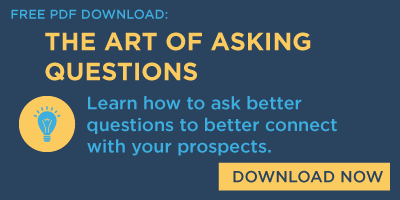
We’re all familiar with Ego. If someone says you have a “big ego,” you know that’s not a compliment. At least not in most circles. Your Ego is about your survival. At its best, your Ego is simply your awareness of your own identity and how you interact with the outside world.
Let’s look at five strategies your Ego may be using that may be interfering with the way you interact with business prospects and partners.
- Impatience: Salespeople are some of the most restless people I know. That get-it-done attitude is a strength when applied to the right things, but impatience can also derail a good meeting. As sales manager, I watched otherwise “good” salespeople have trouble sitting still through a client meeting. Some literally perched on the edge of their seat waiting for their next chance to talk, missing the insights the client or prospects was sharing.
- Distraction: Distraction runs hand-in-hand with impatience. Distraction keeps us from giving our full attention to something else besides ourselves. That distraction keeps us from receiving the information we should be focused on. One of the most effective things you can do in a business meeting is to give your full attention to the other person when they are speaking. And even while you are speaking, to pick up on non-verbal clues they are giving you.
- Control: Salespeople need a strong sense of command to secure meetings and persuade people to take a certain action. Control becomes a problem when we already believe we know the answer and think our job is simply to persuade. If you control a forest fire, you stop it from spreading, but if you’re controlling ideas, you stop the spread of new insights and possibilities.
- Judgment: Good judgment allows you to know which prospects to target and which bad deals to walk away from. Judgments are a problem when we make them prematurely. We may start to judge our situation based more on the past than what is happening in the present. Reserve judgment until you have explored all the possibilities with the prospect.
- Attraction: Attraction, like many of our Ego drives, prompts us to act. What we need to ask ourselves is, "What attraction is driving me in this situation?" Is it to make money or make our goals? Is that clouding our judgment do the right thing for the client or prospect?
As you can see, Ego drives are not good or bad in themselves. It depends on the context and what we are hoping to achieve. If we can recognize the effects of impatience, distraction, control, judgment, and attraction when we are with our clients, we can make sure they are driving us to the win-win outcome that builds lasting relationships.



